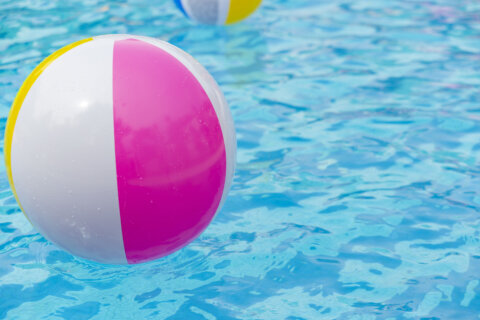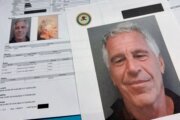Overdoing it in the heat can lead to heat exhaustion, heat stroke and even death. And a D.C. emergency medicine doctor warns that extreme conditions can apply to anyone.
“We see exertional heat stroke in everyone, from little kids playing sports to recreational athletes on up to the highest-level athlete,” said Dr. Korin Hudson, a MedStar Health emergency room physician.
Hudson — one of the official team physicians for the Washington Capitals and Washington Wizards — says conditions that can lead to heat-related illness go beyond air temperature and relative humidity.
A sunny day feels hotter than an overcast day, for instance. And blacktop and artificial turf absorb more heat than other surfaces, such as natural grass.
“Days where there’s not much wind and times where we are in areas with a lot of blacktop or artificial turf, radiant sun coming down — in addition to the heat and humidity — put us at increased risk,” she said.
What are the warning signs of an overheated person? Initially, someone might simply look like they’re overheating, and their energy level begins flagging. Additional warning signs can vary.
“They may be flushed in the face. They may even look pale rather than red,” Hudson said. “They may be sweating profusely, but they may actually have stopped sweating — which is certainly a serious condition when they’re not sweating and no longer cooling themselves off.”
Those are signs that it’s time to get out of the heat, get cooled off and have some cool fluids.
“The real red flag symptom is altered mental status,” she said. “If anybody looks confused, if they’re sluggish, if they’re not answering questions correctly — that’s a true medical emergency. And at that point, in addition to trying to cool them down, we probably want to be calling 911 and getting that patient to the hospital.”
Prevention tips include:
- Wear loose-fitting, light-colored, moisture-wicking “tech” fabrics.
- Exercise in the early morning or evening.
- Have an emergency action plan that might include cool towels close by, a pool to jump into or knowing where the closest air-conditioned space is.
- Stay well-hydrated.
“We want to make sure we’re drinking enough fluids — not just when we’re outside exercising, not just when we’re at the beach, but really all the time around the clock,” she said. “If we’re well hydrated before the activity starts, we’re going to do better when we get out there.”
Also: Avoid caffeine and alcohol, because they dehydrate the body.








